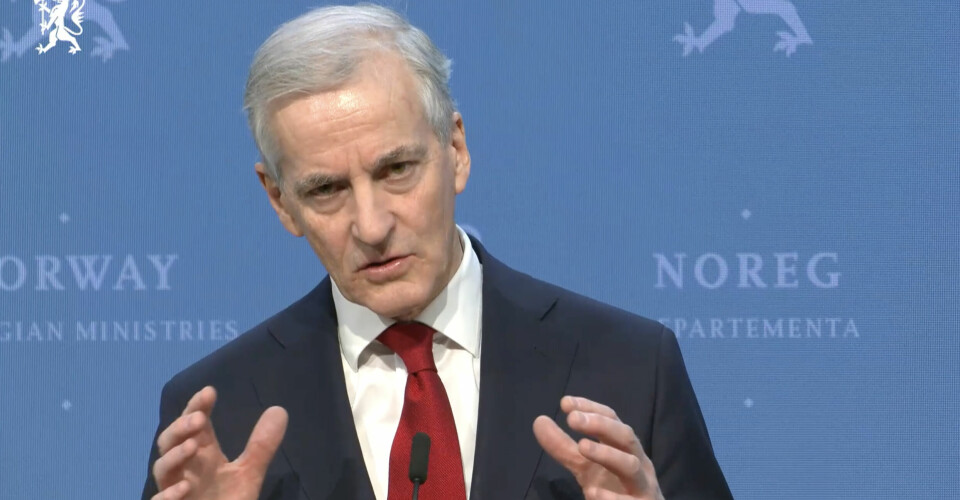
Salmon sector unimpressed as Norway cuts proposed tax from 40% to 35%
• Government hasn’t listened to companies, claims trade body
• News is disappointing but not unexpected, says Mowi chief
• West coast’s ‘viable and potent business community’ threatened
The Norwegian government today announced concessions in its proposed tax on what it says are “extraordinary profits” made by salmon farmers.
It has reduced the rate of the so-called resource rent tax on the value added to fish in net pens from 40% to 35% following a consultation that attracted 420 responses.
It has also increased the amount of profit that salmon farmers can earn before being subjected to the tax from NOK 67.5 million (£5.26 m) to NOK 70 m.
“It is gratifying that they are introducing a lower tax rate. But I perceive a reduction from 40% to 35% as cosmetic, it still gives a tax percentage of 57% (when 22% corporation tax is added),” said Robert Eriksson, chief executive of Seafood Companies, a trade body which represents salmon farmers and others in the seafood sector.
“Bearing in mind that SV (Norway’s Socialist Left Party) has put forward demands for a tax percentage of 48% (70% including corporation tax), I fear that we’ll end up with what was the starting point.”
Eriksson said the government had listened “with deaf ears” to consultation responses from the seafood sector.
Disappointing but expected
Ivan Vindheim, chief executive of Norway's and the world’s biggest salmon farmer, Mowi, told news website E24 that the details of the tax published by the government today don’t change anything.
“This is very disappointing, but unfortunately not unexpected. It only shows that the consultation round was not real,” said Vindheim, who reiterated the company’s position that the tax proposal will have major negative consequences for the Norwegian aquaculture industry.
“With these framework conditions, of course, it won’t work. But this just joins the series of business- and coast-hostile policies from the Støre government,” said Vindheim, referring to the left-leaning administration led by prime minister Jonas Gahr Støre and comprising MPs from the Labour and Centre parties.
Excessive returns 'not accurate'
SalMar, Norway and the world’s second largest salmon farmer, said in a market announcement today that it had submitted a detailed response to the public consultation process clearly and strongly opposing the proposed tax.
“The basis for the tax proposal assumes the salmon industry generates excessive returns compared to the risk involved, but this is not accurate. And SalMar strongly emphasised that the proposal should be permanently set aside,” stated the company, which co-owns Scottish Sea Farms.
Norway’s fifth-largest salmon farmer, Grieg Seafood, said Norway’s Parliament, the Storting, is expected to discuss the tax proposal and enact it before July and may still make changes to the proposal.
Investments worth billions of NOK have been put on hold by salmon farming companies since the government first proposed the salmon tax last September.
“When the law has been enacted by the Parliament, Grieg Seafood will assess how the tax will impact the Group’s strategy and investments,” said the company.
Coast can't live off subsidies
Lawyer Mons Alfred Paulsen from the law firm Thommessen told Fish Farming Expert’s Norwegian sister site Kyst.no that the government had made some concessions on the resource rent tax rate and other taxes, but the result was still significantly tougher taxation for salmonid farmers.
“There is also reason to believe that the risk of significant adverse effects for employment and investment with this proposal is still high,” he told Kyst.
“It is now up to the Storting to assess the proposal and make the decision, and it is the Storting that is responsible for the final arrangement. It is a responsibility I would not take lightly with what is at stake for business along the coast. In the long term, the coast cannot live off increased subsidies to the municipalities from the state. The coast must still have a viable and potent business community. The question is whether this proposal provides that. I am – to put it carefully – far from convinced of that.”
Read the Norwegian government's full tax proposal (in English) here.























































